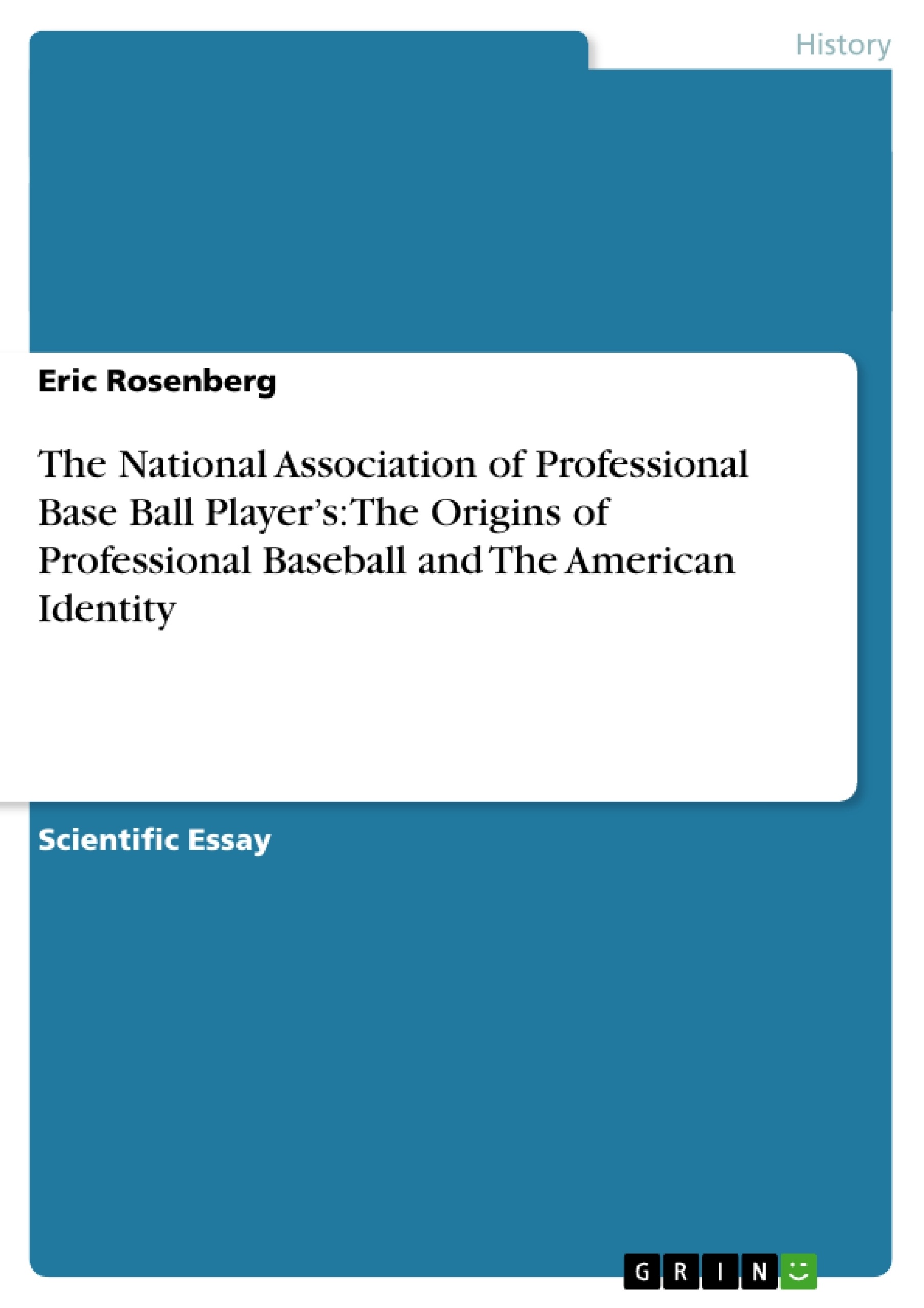With almost utmost certainty, the sun will rise in the east, set in the west, and Major League Baseball will begin a new season in the spring. Such has been assured since 1871, as professional baseball first complemented everyday American life by virtue of the National Association of Professional Base Ball Player’s (NAPBBP) inaugural season. The formation of the NAPBBP denoted a fundamental separation of amateur and professional baseball clubs, and the eternal intertwining of sport and business. This moment in history would more broadly beget a critical juncture in the development of the modern American identity as this era of the nineteenth century is characterized by a generation of citizens who have only known an autonomous United States, thereby distinguishable as the first purely born and bred American population. With this new status came the need to comprehend what constituted wholly American values beyond just regional, economic, and social distinctions, the remnants of a fractious colonial past. Baseball quickly became part of this new sense of American similitude, labeled the “national pastime” for nearly its entire existence. As baseball grew from a regional game into a nationwide phenomenon, more drastic change accompanied, by means of money permeating the sport. The five seasons of NAPBBP play from 1871 to 1876 transpired during a decidedly dynamic period of American history. The societal identity formation occurring during the early stages of the Gilded Age corresponds both in time, and essence, with baseball’s maturation process, culminating in a purely professional NAPBBP. Through analyzing these simultaneous processes, their relation to one another, and the notion of baseball as a microcosm of American society, what characteristics became inherently American, who had the power to actually establish these allegedly universal ideals, and the implications such principles had on the nation’s population become apparent. Baseball, and more specifically the NAPBBP, offered the principal values of late nineteenth century collective American society.
Table of Contents
- The Origins of Professional Baseball
- From Recreation to Competition
- The Gilded Age and the Birth of Professionalism
- Henry Chadwick, the Father of Baseball
Objectives and Key Themes
This text aims to explore the development of professional baseball in the United States, particularly focusing on the National Association of Professional Base Ball Players (NAPBBP) and its significance in shaping American identity during the Gilded Age.
- The evolution of baseball from a recreational activity to a competitive sport.
- The impact of urbanization and industrialization on the growth of baseball.
- The emergence of professionalism in baseball and the creation of the NAPBBP.
- The role of baseball as a microcosm of American society during the Gilded Age.
- The influence of key figures like Henry Chadwick on the development of the sport.
Chapter Summaries
The text begins by outlining the origins of baseball, tracing its roots to English ball games and its adoption as a recreational activity among young Americans. It then explores the transition from a purely recreational pastime to a competitive sport, highlighting the formation of organized clubs and the rise of inter-club competition. The chapter discusses the emergence of professionalism and the factors that led to the formation of the NAPBBP, including the influence of urbanization, industrialization, and the desire for a more structured and competitive sport. Finally, the text examines the significance of Henry Chadwick, a pivotal figure in the development of baseball, and his role in promoting the sport, establishing rules, and influencing its trajectory.
Keywords
Key terms and concepts explored in this text include: National Association of Professional Base Ball Players (NAPBBP), professional baseball, American identity, Gilded Age, urbanization, industrialization, leisure, competition, Henry Chadwick, and the “national pastime.”
- Quote paper
- Eric Rosenberg (Author), 2011, The National Association of Professional Base Ball Player’s: The Origins of Professional Baseball and The American Identity, Munich, GRIN Verlag, https://www.grin.com/document/211231




